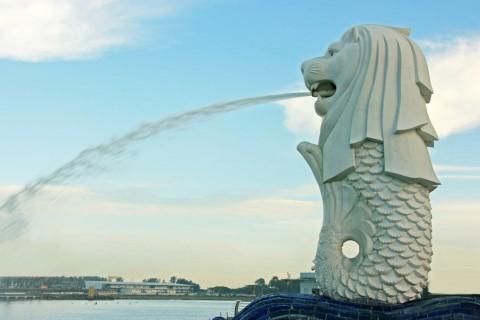
Tariff war footprint tramples beyond Singapore's manufacturing
Banking is another vulnerable target.
Although Singapore’s manufacturing sector is poised to take a heavy beating from escalating trade tensions between the US and China, other sectors remain just as vulnerable to an industry-wide slowdown brought about by the tit-for-tat tariff war.
In the event that a full-blown trade war erupts, Singapore could stand to suffer as much as $22b loss in 2019 GDP even if tariffs will not be imposed directly on the city state.
Singapore’s role as a ‘connector of business’ between the two economic giants makes its transportation and storage industries particularly vulnerable given the export-dependent nature of the domestic economy, Oriano Lizza, trader at CMC Markets told Singapore Business Review. As of 2017, exports accounted for 173% of Singapore’s GDP.
Also read: Trade war could drag Singapore GDP down to 2.7%
“It is well documented that China lean on other countries in the Asian region with respect to its supply chain and that only 65% of the value of Chinese exports come from China itself,” he added.
In fact, Singapore trails only behind Taiwan and Malaysia in regional economies most affected by US tariffs on Chinese goods via supply with over 1% of its market GDP exposed, according to data from asset management firm Schroders.
The city’s marine and shipping industries are also in the direct line of fire which could easily seep over to the oil & gas sectors.
Even prior to the trade war, the offshore and marine engineering industry’s direct output contribution has more than halved since 2014 to about 1% of the domestic economy. And although the sector has finally broken free of a three-year losing streak as its output climbed 28.3% YoY in June which is the highest since March 2014, executives from the sector still thinks that a return to the glory days is unlikely to take place.
Singapore’s lucrative banking business is also under growing pressure from the trade tensions as Lizza observes that client funds have increasingly retreated from the volatile stock market and into safe haven instruments like bonds.
Bank stocks will also be vulnerable to profit-taking in the case of deepening macro uncertainties. In fact, the sector's growth forecast looks increasingly dim as earnings are set to crash from a strong 32% in 2018 to 6.4% by 2019.
Also read: Trade jitters could slow bank loan growth to 7% by end-2018
The non-interest income of the city’s lenders, which they derive from wealth management units, insurance and trading businesses, are amongst the most exposed revenue streams from the global equities rout.
DBS and OCBC are poised to bear the brunt of the fallout as they could be hit by 10-15% decline in non interest income in Q3 unlike UOB which may emerge relatively unscathed with a modest decline of 3%, Krishna Guha, equity analyst at Jefferies said in a report.
In fact, the heated rally of the banks’ wealth management arms - which booked strong performances in Q1 led by UOB (+30%), OCBC (+22%) and DBS (+17%) - has been cut short on the back of a stiffer and unaccommodating market environment that has piled pressure on assets under management (AUM).
The ultra wealthy aren’t exempt to this downturn as they will have to correspondingly change their risk appetite to conservative investment with less exposure to such industries, added Lizza.
“Beyond manufacturing, private banking will be hurt also as there will be increasing scrutiny of Chinese clients both from China’s and Singapore’s sides. UBS banker’s case says it all. The issue is not only corruption but stopping capital outflows from China at a time of very negative expectations on RMB and Chinese economy,” Alicia Garcia-Herrero, chief economist at Natixis commented.
Also read: Banks turn to loans to boost earnings as wealth income weakens
“The exposed industries face an uphill battle, just because of their positioning in the market,” Lizza said. “Depending on the size and stature of the company they do have a few options to soften the impact.”
For instance, the government could take a leaf out of Hong Kong’s playbook and provide insurance to protect small companies against expected losses that the deepening trade tensions will bring, Lizza said.
“The scheme protects small and medium-sized enterprises (SMEs) against shortfalls and has worked predominantly with the Trade Development Council and Hong Kong Export Credit Insurance Corporation in its establishment,” he explained.
However, Natixis’ Garcia-Herrero doubts the sustainability of such temporary financial relief schemes given the protracted nature of the trade tensions that could easily blow up into a full-fledged cold war. In such case, Singapore could only brace for impact.
























 Advertise
Advertise










